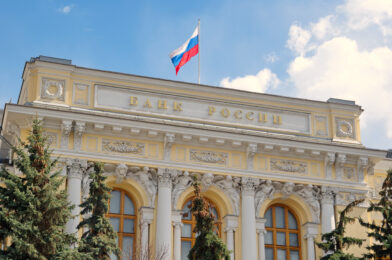
Breaking: German inflation rises to 2.4% in May, driven by service sector growth
- Annual inflation rate in Germany rose from 2.2% in April to 2.4% in May.
- Core inflation, excluding food and energy, remained at 3% in May.
- Energy prices decreased by 1.1% year-on-year, while services prices surged by 3.9%.
Germany’s annual inflation rate increased to 2.4% in May, up from 2.2% in April, according to preliminary data from Destatis.
This rise meets analysts’ predictions and the outlook from the German national bank.
Consumer price index sees a 0.1% monthly increase
Copy link to sectionThe consumer price index (CPI) in Germany rose by 0.1% on a monthly basis in May, indicating a modest yet steady increase in consumer prices as the economy stabilizes.
Core inflation holds steady at 3% for May
Copy link to sectionAnnual core inflation, which excludes volatile items such as food and energy, remained stable at 3% in May, unchanged from April. This suggests that underlying inflationary pressures are persistent within the economy.
Mixed trends in energy and service prices
Copy link to sectionEnergy prices dropped by 1.1% year-on-year in May. Meanwhile, the prices of goods increased by 1% compared to May 2023, and services saw a significant rise of 3.9%. The substantial increase in service prices is a major factor contributing to the overall rise in the inflation rate.
Economists and ECB closely monitor inflation data
Copy link to sectionEconomists are closely monitoring these inflation figures from Germany, Europe’s largest economy, ahead of the eurozone’s inflation data release expected on Friday.
The European Central Bank (ECB) appears poised to lower interest rates next week, following its largest-ever series of hikes aimed at reducing inflation to just above its 2% target, though these measures have also restricted credit availability.
More industry news







